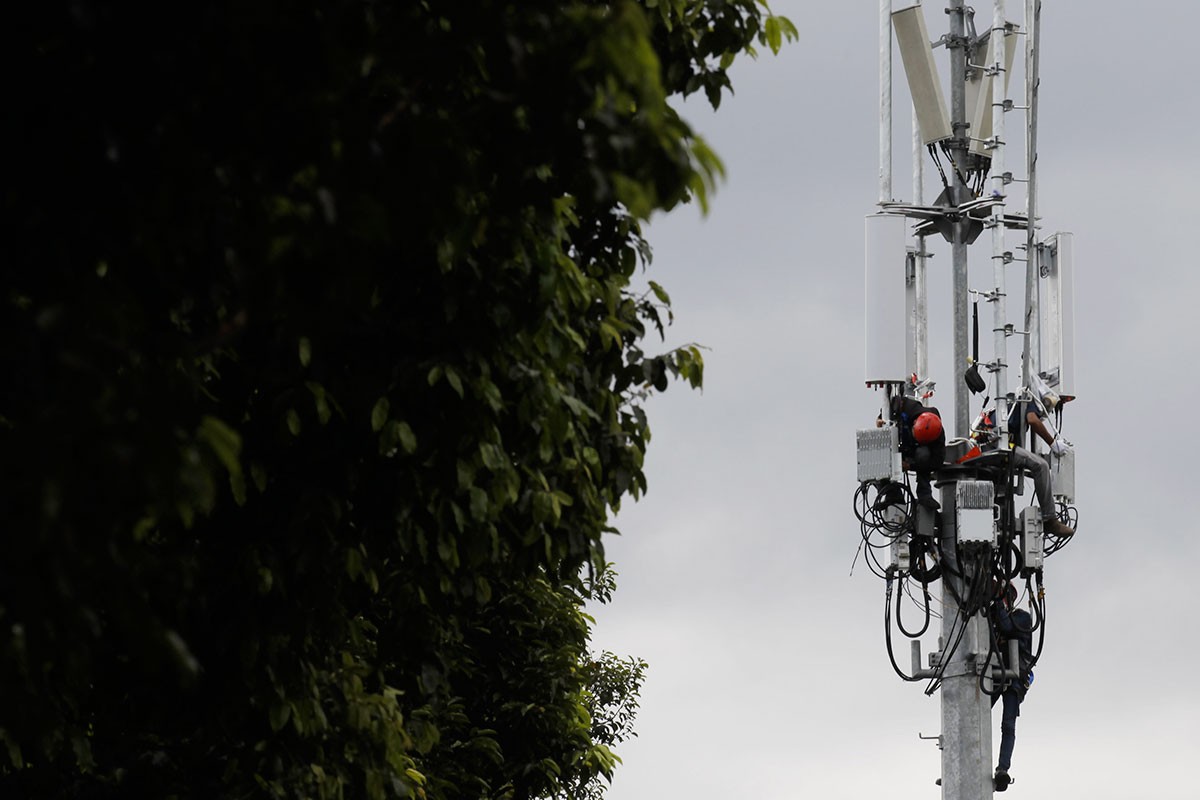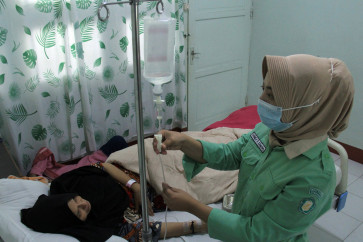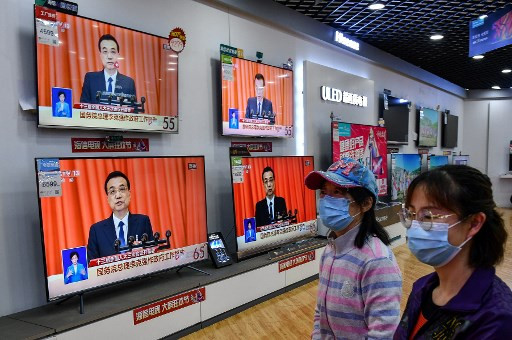Telecom companies ask for deferred payments amid economic downturn
Internet usage from the corporate sector has dropped sharply due to the government’s social distancing policy, imposed since mid-March to halt the spread of COVID-19.
Change Size
 A technician checks a telecommunications tower in Menteng, Central Jakarta
(JP/Dhoni Setiawan)
A technician checks a telecommunications tower in Menteng, Central Jakarta
(JP/Dhoni Setiawan)
L
ike other business sectors, telecommunications companies are also asking for a relief program from the government to cope with a sharp decline in revenues as a result of the government’s distancing policy, which among others, requires people to work from home.
Telecommunications providers are asking the Communications and Information Ministry to defer the payment of their non-tax obligation as internet usage from the corporate sector dwindles due to the government’s social distancing policy imposed since mid-March to halt the spread of COVID-19.
The Telecommunications Network Providers Association (Apjatel) has sent a letter to Communications and Information Minister Johnny G. Plate to officially request for financial relief to help members stay afloat.
In the application letter, the association asked for a deferral in the payment for telecommunication services fees (BHP) and universal service obligation (USO), the association’s chairman Arif Angg said in Jakarta on Thursday.
“We usually pay the BHP and USO fees in April. However, we are facing declining revenues from the corporate sector, while we also have to pay corporate income taxes [PPh badan] and Idul Fitri bonuses [THR] to our employees,” Arif told The Jakarta Post on a phone interview.
He said the corporate market, which represents a huge chunk of telecommunications companies’ revenues, had declined by 30 to 35 percent by mid-April. Its broadband traffic also declined by 60 percent compared to normal conditions, according to Apjatel's data.
“The demand from retail market customers has increased 10 to 15 percent, but it cannot cover our losses from the corporate market. The corporate sector is our bread and butter,” Arif said.
Internet service provider Biznet echoed Apjaki’s statement, saying that its revenue had been affected by office and industry closures, as the corporate market makes up 80 percent of the company’s source of revenue.
“We started to see a decline in early March. That’s when the hotels, industries and offices started to shut down their operation and their internet usage,” Biznet’s president director Adi Kusma said in a phone interview without disclosing the decline.
Besides the loss of revenues, internet providers also claimed that they are suffering from the weakening rupiah, as companies must import equipment to maintain their network bandwidth.
“The demand from retail users increases, but we have to increase our spending to purchase bandwidth expansion for new customers. The rise in the US dollar has put us in a difficult position,” Arif said.
According to Bloomberg data, the local currency is currently trading at 15,640 per US dollar. It has depreciated by about 12 percent since the beginning of the year.
Seeing providers’ revenue decline, Apjatel filed a request to the ministry for a 12-month USO and BHP payment deferral and waiver for late payment fees.
According to the letter obtained by the Post, Apjatel bases its request on Article 62 of Law No.9/2018 regarding the collection of non-tax revenue (PNBP), which stipulates companies are allowed to ask for payment deferrals if they suffer business problems due to certain conditions.
“In this difficult time, we hope that businesses and the government can work together to dampen the economic downturn. If the business sector goes well, companies can hire more people, while the government could raise taxes in the future,” Adi said.
Telecommunications network providers in the country recorded a surge in internet traffic and data communication after the government instructed people to work, study and pray from home.
Cellular operator Telkomsel, recorded a 5 percent surge in data services after March 15. The company also saw a 10.4 percent increase in traffic for cloud computing services, 7.5 percent increase in digital advertising, 7.3 percent increase in streaming services and 5.2 percent in browser services.
Other telecommunications operators like PT XL Axiata also recorded a 15 percent traffic increase from March 16 to 20.









